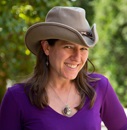Page 15 • (538 results in 0.036 seconds)
-
research areas will provide an overview of opportunities. Students can attend more than one session. Click on the links to register for each session you want to attend. All times are PST. November 3, 10:30 am Engineering and Applied Science (Research areas: Aeronautics, Applied and Computational Mathematics, Applied Mechanics, Applied Physics, Civil Engineering, Computer Science, Computing and Mathematical Sciences, Control and Dynamical, Systems, Electrical Engineering, Materials Science, Mechanical
-
Desserts and Demos 2016 on Thu. March 10th, 7 PM! Posted by: yakelina / March 4, 2016 March 4, 2016 Read Previous Mathematics/Chemistry seminar this Wednesday 3/2 featuring Profs. Justin Lytle & Tom Edgar Read Next Chem. Seminar: Joel Baker, Monday, March 14th LATEST POSTS ACS Diversity, Inclusion, Equity, and Respect (DEIR) Scholarship May 7, 2024 Environmental Lab Scientist in Training May 2, 2024 The Priscilla Carney Jones Scholarship April 18, 2024 $2000 DEIR scholarship- Extended Deadline
-
programs in the College of Natural Sciences: Biology, Chemistry, Computer Science, Environmental Studies, Geosciences, Mathematics, Physics, and Psychology.) The PLU community (students, faculty, staff, alums) will select the winners, and the top three photos in each category will be framed and displayed in the glass cases across from Enrieké the Slug in the Rieke Science Center hallway. Photo contest winners will be announced during Rieke Weekie, our fall celebration of all things science in Rieke
-

, 421 were approved funding —including PLU.Welcome to Tacoma/South Puget Sound MESA! Vision Statement We will end “under” representation in the science, technology, engineering and mathematics (STEM) fields through education, opportunities, and partnerships. Mission Statement To prepare underrepresented (African American, Hispanic/Latino, Native American, Pacific Islander, and women) students for higher education and careers in science, technology, engineering and mathematics (STEM). Read Previous
-
PLU introduces new data science major to meet growing demand in data-driven economy PLU officials recently announced the launch of a new data science major, which will commence this fall semester. This strategic addition responds to the escalating interest among undergraduates in coursework dedicated to data science and analytics. The highly collaborative mathematics and computer science departments will… May 6, 2024 Research & Academics
-
workplace quickly after graduating.” Sara Christensen, 2017After graduating from PLU with a BA in Economics, BA in Politics and Government, and a Mathematics minor, Sara will be continuing her studies at the University of Washington where she will be pursing a Master of Education in Higher Education Leadership. Sara hopes to combine her interest in higher education with her background in economics to identify more equitable and efficient ways of funding higher education in the U.S. Desirae Haselwood
-
programs section), Engineering Dual Degree program (located in the undergraduate courses and curricula section), and the STEM Education Minor (also located in the undergraduate courses and curricula section) for related programs. Descriptions of specific course offerings and degree requirements offered within the College of Natural Sciences are listed under: Biology Chemistry Computer Science Earth Science & Environmental Studies Mathematics Physics Psychology STEM Education The following courses are
-

the real world and find a company to work with, which has given me all the freedom to work on what I want and what I’m interested in. I feel like a real adult. This has allowed me to either succeed or fail all on my own. Why did you choose the MSMR program? The program was actually presented to me while I was pursuing job opportunities with my mathematics degree. Last year, I went to the capstone presentations of the 2018 MSMR cohort and I was deeply impressed by the students and their projects
-
Computer Science Learning OutcomesEffective January 2019Learning OutcomesOur learning outcomes are statements that describe skills that we expect to enable our student to attain by the time of graduation. An ability to apply mathematics to solving computing problems. An ability to critically analyze a problem and to design, implement, and evaluate a computing solution that meets requirements. An ability to work effectively in small groups on medium scale computing projects. An ability to
-

areas: biology, chemistry, computer science, environmental studies, geosciences, marriage and family therapy, mathematics, music, nursing, physics. Library instruction, reference, online resource management. Selected Presentations 2021 ALD/ACRL-WA and ACRL-OR Joint Fall Summit, Re-contextualizing the Antelope: What a Year in Nature Taught Me about Documentation (November 5, 2021) Interests hiking camping martial arts Hardanger fiddle science fiction
Contact Information
Do you have any feedback for us? If so, feel free to use our Feedback Form.


